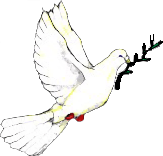~ Honouring our poetic ancestors ~
Land
Swear by the olive in the God-kissed land—
There is no sugar in the promised land.
Why must the bars turn neon now when, Love,
I’m already drunk in your capitalist land?
If home is found on both sides of the globe,
home is of course here—and always a missed land.
The hour’s come to redeem the pledge (not wholly?)
in Fate’s “Long years ago we made a tryst” land.
Clearly, these men were here only to destroy,
a mosque now the dust of a prejudiced land.
Will the Doomsayers die, bitten with envy,
when springtime returns to our dismissed land?
The prisons fill with the cries of children.
Then how do you subsist, how do you persist, Land?
“Is my love nothing for I’ve borne no children?”
I’m with you, Sappho, in that anarchist land.
A hurricane is born when the wings flutter . . .
Where will the butterfly, on my wrist, land?
You made me wait for one who wasn’t even there
though summer had finished in that tourist land.
Do the blind hold temples close to their eyes
when we steal their gods for our atheist land?
Abandoned bride, Night throws down her jewels
so Rome—on our descent—is an amethyst land.
At the moment the heart turns terrorist,
are Shahid’s arms broken, O Promised Land?
– Agha Shahid Ali (1949-2001)
Some of us who also play over at dVerse Poets' Pub, particularly in this year's 'Poetry Form' series, are currently trying our hands at the ghazal, an ancient Persian form which has also been adapted into other languages such as Urdu and Hindi.
So I thought I'd look for one by a famous contemporary exponent. Though originally from Kashmir, Ali, who lived and worked in the United States from 1976 until his death, wrote his poetry in English; perhaps that gives those of us who write in English an even better idea of the ghazal form. Then again, I think his style must be unique, even when the form is traditional. In the Introduction to his book, Ravishing Disunities, featuring ghazals in English by a number of other poets, Ali is firmly in favour of the traditional form, including the connections of theme.*
Kashmir, where he grew up, a disputed territory between India, Pakistan and China, became so war-torn that eventually it was no longer feasible for him to make return visits home – all the more sad in that previously Kashmir had long been famous for its great beauty. His beloved homeland was the subject of much of his poetry.
His personal sadness about his homeland seems to inform this poem, along with an expatriate's ambivalence as to which country is 'home'. From this he seems to extrapolate to sorrows, disappointments and blights of various kinds pertaining to other lands; for instance some of his lines make me think of the Israel-Palestine conflict. Other references are so personal that we can't know any details beyond what is mentioned – yet that doesn't matter, the point being the moods of the various moments in the various lands, adding up to overall beauty, love and grief. That's my reading, anyway.
So I thought I'd look for one by a famous contemporary exponent. Though originally from Kashmir, Ali, who lived and worked in the United States from 1976 until his death, wrote his poetry in English; perhaps that gives those of us who write in English an even better idea of the ghazal form. Then again, I think his style must be unique, even when the form is traditional. In the Introduction to his book, Ravishing Disunities, featuring ghazals in English by a number of other poets, Ali is firmly in favour of the traditional form, including the connections of theme.*
Kashmir, where he grew up, a disputed territory between India, Pakistan and China, became so war-torn that eventually it was no longer feasible for him to make return visits home – all the more sad in that previously Kashmir had long been famous for its great beauty. His beloved homeland was the subject of much of his poetry.
His personal sadness about his homeland seems to inform this poem, along with an expatriate's ambivalence as to which country is 'home'. From this he seems to extrapolate to sorrows, disappointments and blights of various kinds pertaining to other lands; for instance some of his lines make me think of the Israel-Palestine conflict. Other references are so personal that we can't know any details beyond what is mentioned – yet that doesn't matter, the point being the moods of the various moments in the various lands, adding up to overall beauty, love and grief. That's my reading, anyway.
Wikipedia describes the ghazal as 'a form of amatory poem or ode. ... [which] may be understood as a poetic expression of both the pain of loss or separation and the beauty of love in spite of that pain'. It seems that they are often sung, as you can discover on YouTube. Ali was greatly influenced by the famous – described as 'legendary' – Indian singer of ghazals (and other classical Indian music) Begum Akhtar, with whom he formed a friendship.
As well as becoming a noted poet in English, he had an academic career in America. His Wikipedia entry lists his occupation as 'Poet. Professor.' and adds: 'Ali taught at the MFA Program for Poets & Writers at University of Massachusetts Amherst, at the MFA Writing Seminars at Bennington College as well as at creative writing programs at University of Utah, Baruch College, Warren Wilson College, Hamilton College and New York University. He died of brain cancer in December 2001 and was buried in Northampton, in the vicinity of Amherst, a town sacred to his beloved poet Emily Dickinson.'
As well as becoming a noted poet in English, he had an academic career in America. His Wikipedia entry lists his occupation as 'Poet. Professor.' and adds: 'Ali taught at the MFA Program for Poets & Writers at University of Massachusetts Amherst, at the MFA Writing Seminars at Bennington College as well as at creative writing programs at University of Utah, Baruch College, Warren Wilson College, Hamilton College and New York University. He died of brain cancer in December 2001 and was buried in Northampton, in the vicinity of Amherst, a town sacred to his beloved poet Emily Dickinson.'
Despite his sad, early death, he made his mark on the world with his own poetry, which won various awards, and with his translations from the Urdu of another renowned ghazal poet, Faiz Ahmed Faiz.
In his obituary the KashmirWalla newspaper notes: 'To commemorate his legacy, the University of Utah in Salt Lake City has constituted an award in his name — Agha Shahid Ali Prize in Poetry, for young poets and writers.'
_____________________
*He says (in a much longer context): 'When poets go crazy with the idea of composing thematically independent couplets in a free verse poem, they manage to forget what holds the couplets together—a classical exactness, a precision so stringent that it, when brilliant, surpasses the precision of the sonnet and the grandeur of the sestina (I do mean that) and dazzles the most untutored of audiences. The ghazal's disconnectedness must not be mistaken for fragmentariness...' and, 'If one writes in free verse—and one should—to subvert Western civilization, surely one should write in forms to save oneself from Western civilization?'
Material shared in 'The Living Dead' is
presented for study and review. Poems, photos and other writings and images
remain the property of the copyright owners, where applicable (older poems may
be out of copyright). The photo of Agha Shahid Ali, from his Wikipedia entry, is used according to Fair Use.













